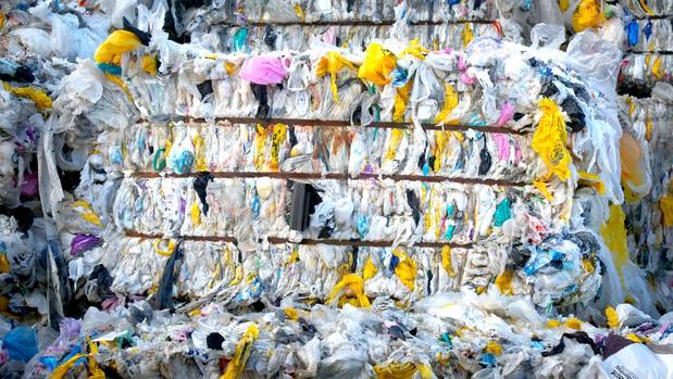Thomas Neitzert, a professor of engineering at Auckland University of Technology and the president of Engineers for Social Responsibility, said the new research helped "destroy" the thinking a plastic bag with a label "biodegradable" was safe for the environment.
"The current standards are not taking properly into account real-life conditions and are therefore underestimating the break-down times of plastic materials," Neitzert told the NZ Science Media Centre.
The standards were also not accounting for the damage of break-down particles on marine life when they are digested, he said.
"A biodegradable plastic bag is potentially dangerous to marine life from the moment it enters the water until it dissolves into micro or nanoparticles over many years."
Neitzert, who was not one of the study authors, said the co-existence of conventional plastic bags and so-called biodegradable plastic bags of compostable materials was also upsetting current recycling operations and is confusing the general public.
"Biodegradable plastic bags are in many cases made from crude oil, requiring carbon-based production processes and are emitting CO2 or methane when degrading," he said.
"On the way to a low-carbon economy, we should, therefore, carry a reusable bag made from cloth or jute, like our parents did."
As with many standards, there was a gap between laboratory testing and the outside world with its constant changing conditions - in this case concerning seasons, temperatures and concentrations of chemicals.
Plastics existed in wastewaters, freshwater and the marine environment and standards never covered all of them, he said.
In fact, the standards were usually underestimating the life of a plastic product by years and sometimes decades.
The test durations were usually only up to six months - apart from marine conditions where they go out to two years - and test conditions were not precisely described in terms of inocula and material sizes, Neitzert explained.
University of Auckland chemical sciences lecturer Dr Ivanhoe Leung said there was no single magic bullet to solve the plastic pollution problem.
"It is important that governments and the international community to review current international standards and testing methods so that we can get realistic models to predict the biodegradability of plastic materials in different environments," Leung said.
"Research funding should be spent so that universities and industries alike can develop materials that have better properties, balancing the needs for durability and biodegradability.
"Alternative methods, such as the use of plastic-eating bacteria, should be investigated so that we can find new ways to break down and recycle existing plastic wastes in a more efficient manner."
Professor Kim Pickering, of the University of Waikato's School of Engineering, said it would be best to design products from the outset with end of life in mind, while looking for ways to add value to waste plastic.
"We should be thinking carefully before describing things as 'single-use' plastics."
New Zealanders use around 1.6 billion single-use plastic bags every year, which end up in landfills, litter, or oceans, where they can choke animals or break down and enter our own food chain when fish swallow them.
This month, the Warehouse Group became the latest retailer to ditch all single-use plastic checkout bags, replacing them with fully compostable bags.
Those plant-based bags were designed to disintegrate in compost within 12 weeks with no toxic effect.
The move will be rolled out across the all 254 Warehouse, Warehouse Stationery, Noel Leeming and Torpedo7 stores in the country by the end of the year.
This move comes off the back of Foodstuffs and Countdown's plans to phase out single-use plastic bags by the end of 2018.










